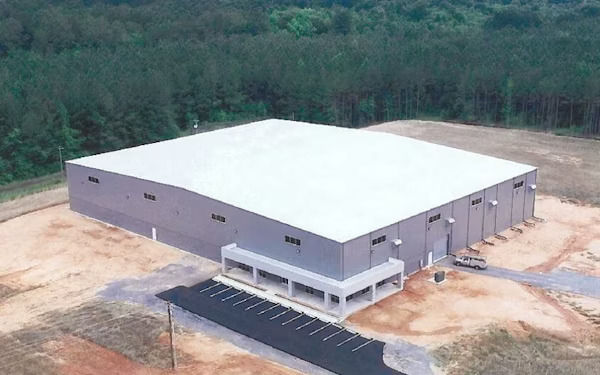Experiment station speaker describes research at Co-Lin's Wesson campus event
- Jul 10, 2025
- 3 min read
Special to Wesson News

Are weeds a problem in your yard and garden?
Instead of chemicals, the answer might be heating your soil, Dr. Shaun Broderick from the Mississippi State University (MSU) Truck Stops Experiment Station told more than 100 attendees at the Natchez Trace District spring workshop last month.
Broderick was the guest speaker at The Garden Clubs of Mississippi (GCM) June 4 event at the Thames Center on Co-Lin’s Wesson campus. Attendees came from Brandon, Crystal Springs, McComb, Natchez, Madison, Raymond, Richland, Florence, Madison, Spring Lake, Jackson and Wesson.
Steaming soil to control weeds and other pathogens is one of many research projects ongoing at Truck Crops Branch Experiment Station on Highway 51 in Copiah County just south of Crystal Springs.
“Steam at temperatures up to 250 degrees F is placed over tilled land until the soil temperature reaches 160 degrees F at 4 inches deep,” Broderick said. “The treatment kills most weeds, soil-borne pathogens, slugs, and some insect pests. It is well-suited for organic growers who do not want to use herbicides or pesticides. We have used steam treatments in different vegetable and flowering crop experiments.”
Research at the station, which was established in 1938, also encompasses vegetables – the facility’s initial focus, ornamental crops, fruits and pecans.
“Over the years, as new technology emerged and our understanding of what growers, producers, and home owners wanted out of their plants, we have changed along the way,” Broderick explained. “We have a little over 175 acres of land to work with which makes us the largest horticulture research station in the MSU system. There are two laboratories, shop facilities, nine greenhouses and seven high tunnels onsite.”
Researchers conduct variety trials for commercial growers and the gardening public. They evaluate how well certain plants grow under various conditions in the field, in the greenhouses, in the high tunnels and in various containers. Three of the high tunnels are dedicated to researching organic fruits and vegetables. The station maintains an online database of all of the plants included in its annual variety trials so growers have quick and easy access to learning about the performance of a new variety.
The ornamental research program has or is working on many projects such as a breeding program for new plants in Mississippi, websites to distribute information on performance of plants in our climate, Hydrangea cultivar trials, fertilizer management studies, Crape Myrtle variety trials, substrate ingredient studies, winter production strategies for high tunnels, growth regulator research, season extension technology studies, pot-in-pot planting research, Bio-container trials, and yearly bedding plant cultivar trials, including both a spring and fall annuals trial with over 200 entries each.
At the half-day meeting, Wesson Mayor Alton Shaw, who welcomed the attendees to town, and state garden club leaders shared the podium with Broderick.
Focusing on garden club issues were Dixie Thornton, past Wesson Garden Club (WGC) president and current Garden Clubs of Mississippi Third Vice President, past WGC president Lisa Smith and current WGC president Sherri Carty, Nan Harris, Natchez Trace District Director, Sassy Mauldin, 2025-27 GCM, Angelia Wade, GCM executive secretary, McComb Garden Club President Brianna Causy, who invited attendees to the Natchez District fall meeting at Natchez.
They recognized local garden clubs for award winning work with children and youth, beautifying their towns and gardening techniques. They also encouraged clubs to:
Seek future awards for children’s, memorial, historical and church gardens and plantings.
Compete in the Youth Sculpture Contest to engage students in grades four through eight to create sculptures of recyclable, reused and reduced materials, involving them in saving the environment and helping to keep the planet green.
Apply for grants up to $500 over the next two years for projects focused on garden therapy, natural disasters, the Plant America Community Project, wildflowers and native plants and landscaping for the economically challenged.
The meeting concluded with a luncheon prepared by Co-Lin chef Chris McSweyn.





Comments